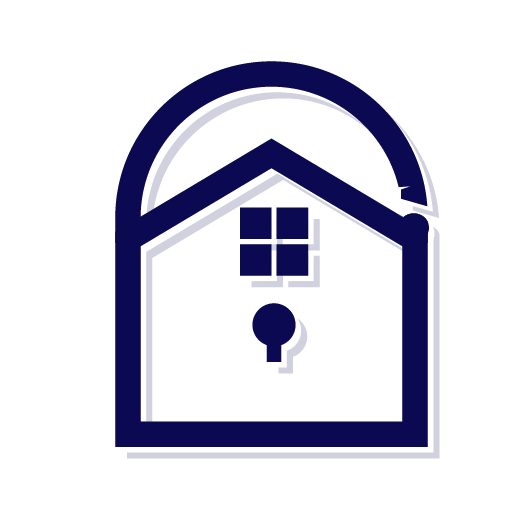
Preparing various sorts of meals for family get-togethers or holiday celebrations may be delightful. However, kitchen safety should be your first concern due to the many environmental risks and equipment items that might cause harm to you and your family and friend—paying attention to what you’re doing while following kitchen safety guidelines is incredibly beneficial.
Your cooking prowess may be undeniable, but how do you perform in terms of food safety? When it comes to kitchen safety, you need to do much more than just wash your hands before you begin cooking. Things like these may seem little at first, but they are essential to your health.
Making a home-cooked dinner takes time, and you don’t want to waste that time because of anything that went wrong during the cooking process. If you know the potential dangers, you and your family may prevent burns, wounds, slips, and food poisoning.
Kitchen Safety Do’s and Don’ts:
Here are some Do and Don’ts for keeping your kitchen safe in the future:
DO’s
Here are a few most critical tips to follow to improve kitchen safety:
1. Use knife carefully
A knife with a dull blade is more likely to slide and injure you than a sharp one. One of the simplest methods to keep your blades safe is to maintain them sharp.
Invest in a high-quality kitchen knife for everyday tasks. Various types of knives may be used for different tasks. For example, we can’t use the same knife to chop meat and strawberry since the materials are different.
2. Careful fire safety
To avoid fires and keep one another safe from harm, every kitchen staff member must know the fire drill.
Keep your kitchen windows open and equip several fire extinguishers. Emergency lights and escape signs should be placed all through the adjoining area.
To stay one step ahead, consider purchasing appliances with built-in fire suppression. Aside from that, employees must be shielded from any health and safety risks by having enough ventilation.
3. Always wash your hands thoroughly.
When working in a warm, stressful environment for extended periods, we frequently overlook the need to wash our hands.
In the kitchen, you must remember this since you are aware of the impact of your carelessness. Before and after cooking, always wash your hands with hot, soapy water or sanitize them.
It is necessary to wash your hands between certain dishes to prevent food allergens from spreading.
4. Use separate chopping boards.
Allergic reactions may be created using the same cutting board for fruits, meats, and vegetables.
However, washing the cutting board completely with soap and hot water isn’t always practical, particularly when orders need to be released immediately. Cooking anything that may cause an allergic reaction is out of the question.
You should use separate cutting boards for raw meat, seafood, poultry, fresh fruits, vegetables, and bread; this is the best way to prevent cross-contamination.
5. Wear appropriate clothes
To ensure hygiene standards, you must teach your personnel that correct gear is a non-negotiable element, particularly while preparing food.
For example, wearing long, baggy-sleeved gowns while working around open flames or hot liquids is terrible. For a hassle-free work environment and the highest level of sanitation, one must adhere to the required kitchen dress code.
To manage a kitchen smoothly, you must ensure a safe environment. Workers in a safe kitchen have access to various services, including safety, cleanliness, and regulatory compliance.
It also helps prevent an accident, expose your workers, or save consumers from the inadvertent danger of contaminated food, allergic responses, and other health concerns.
That’s why it’s essential to follow these kitchen safety rules to keep ourselves and our loved ones safe in the kitchen.

Don’ts
The following are some circumstances to avoid while maintaining kitchen safety:
1. Putting leftovers in the wrong place
Let’s dispel the idea that hot food should not be stored in the refrigerator. Keeping food at room temperature for cooling down allows the germs to collect in the surroundings for a more extended period before refrigeration, so it is not recommended.
Cross-contamination may occur if leftovers are stored in the same areas as fresh meals or raw materials. Be cautious! Keeping food outdoors for an extended period causes it to spoil more rapidly, even if it is refrigerated. If it does not get rotten, its flavor will inevitably be harsh.
2. Lack of training in fire safety
The staff needs to be aware of both the placement of fire blankets and fire extinguishers and the proper way to use each of these items. In addition to that, the kitchen crew is responsible for manually activating the fire alarm system, performing cardiopulmonary resuscitation (CPR), and aiding burn patients.
3. Don’t walk with the naked foot.
You should never go barefoot and always wear shoes that completely cover your feet when you are in the kitchen.
The soles of your feet will be shielded against injury if you step on a shattered piece of glass, for example, or if you accidentally spill boiling water or oil.
4. Avoid using metal utensils on non-stick surfaces.
When metal tools are used to cook, non-stick pans may chip or flake. By doing so, hazardous substances might be incorporated into your diet. Plastic spoons are a better alternative.
5. Do not ignore anti-friction surface finishes.
Slip-resistant mats and floor give workers the required resistance and grip to sustain a quick pace of activity in the kitchens without concern about suffering an accident.
Non-slip mats might also be helpful in this situation. Using it prevents the fast-moving employees from slipping away.
It is necessary to take a multi-dimensional strategy to maintain your kitchen safety. In addition, the installation of technological tools in your kitchen, such as a kitchen telephone, will unquestionably assist you in fulfilling the requirements for a safe working environment.
6. Inadequate appliance care and upkeep
When it comes to water, electricity is not a friend. If you do not keep your electric equipment and wires away from water, you take the danger of receiving an unexpected electric shock.
When you plug anything in or out, we recommend drying your hands. It is essential to keep cables and equipment that use electricity away from water.
Dry your hands before plugging or unplugging anything. Turning off and unplugging a device indicates that you’ve finished using it.
Conclusion
A kitchen demands a multi-faceted strategy, but following the basics, adhering to general norms, and employing high-quality kitchen equipment can help you ensure the safety of your kitchen.
When cooking food in the kitchen, these kitchen safety rules is essential to follow to prevent yourself or others from any injury. Lastly, to avoid food poisoning, you must practice excellent cleanliness while preparing your meals.



